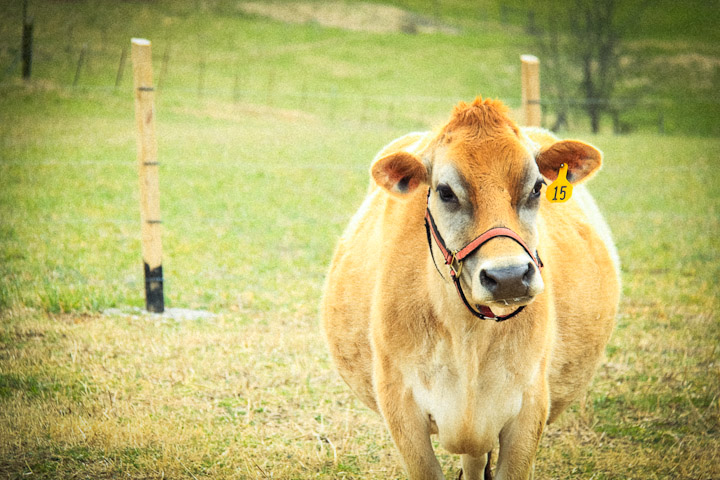Questions to Ask Farmers
Article by Shawn Dady on July 25, 2012
Recently, I became aware of a situation where customers thought they were getting organic raw milk, when really they were not.
So Sally Fallon and I came up with a list of questions for customers to use when trying to find a raw milk farmer.
Here they are:
- What breed or breeds of cows do you milk?
- What do your cows eat? Follow ups: What about in the winter? What about at milking time?
- If they mention store bought feed, ask: How many pounds per day does each cow receive? Ask what the ingredients are. Is it cracked corn or is it store-bought feed with soy added?
- When do you use antibiotics? Do you use rBGH (bovine growth hormone)? What vaccinations do you give?
- How do you control flies on your cows? How do you control weeds in your grazing fields? What type of wormer do you use?
Answers:
- Of course you are looking for Jerseys, or some other heirloom breed, not Holsteins. Holsteins can be acceptable but they are much more difficult to grass feed. They are the more modern breed, meant to eat grain and not grass. This produces more milk and less cream, and really a lower quality, less pathogen-resistant milk. You really want to find the heirloom breeds. For a more complete listing of the breeds, click on this link: http://www.ansi.okstate.edu/breeds/cattle.
- This is for question 2 and 3…..you want the cows to mostly eat grass during the growing seasons. If you can find a farmer that does 100% grass fed, then that is the absolute best milk. It’s the milk with the most CLA in it. When you feed grain, the levels of beneficial CLA in the milk goes down exponentially. Sometimes, farmers will give a little crushed corn at milking time. This is not perfect, but it is okay. For cows, any other store-bought feeds are definitely not recommended, esp. if the feed contains any soy at all. You don’t want pounds and pounds of feed being ladled out to the cows you get milk from.In the winter, the cows should be supplemented with some organic hay (not corn) silage, as well as stockpiled brown grass, alfalfa, and winter root vegetables. Cows love pumpkins 🙂 .
- No antibiotics should be given unless it’s a life-or-death situation and the cow is removed from the milking line until the antibiotic is out of her system. The farmer should use no rBGH at all and give no vaccinations.
- The fly control should not be in the feed and thusly in the cow’s blood (resulting in the flies biting the cow and dying). It should be something organic (like Shaklee’s Basic-H) that is sprayed on externally.Weeds in the grazing fields should also be controlled by organic alternatives NOT by herbicidal sprays. Wormers should be all organic and really are only needed by calves, not adult cows. If your raw milk farmer does not operate this way, you should really consider what you can and cannot live with.
